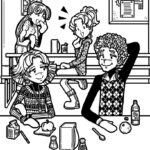Beyond the captivating romance and electrifying dance sequences, the enduring legacy of Dirty Dancing is deeply intertwined with its unforgettable soundtrack, a compilation of classic 1960s hits and original compositions. Released in 1987 alongside the film, the Dirty Dancing soundtrack not only complemented the movie’s narrative but transcended it, achieving phenomenal commercial success and cementing its place in pop culture history. Set in the summer of 1963, the film tells the story of Frances “Baby” Houseman and her transformative relationship with dance instructor Johnny Castle, and the music perfectly encapsulates the era while resonating with audiences across generations.
An instant box office phenomenon, Dirty Dancing grossed over $200 million globally and garnered critical acclaim, including an Academy Award for Best Original Song for “(I’ve Had) The Time of My Life.” The Dirty Dancing soundtrack mirrored this success, achieving 14-times multi-platinum certification by 2022, a testament to its enduring popularity. Often cited among the greatest movie soundtracks and dance films of all time, Dirty Dancing‘s musical power lies in its ability to evoke nostalgia for the 1960s while maintaining a contemporary 1980s sensibility, creating a timeless appeal that led to a successful stage musical adaptation in 2004.
Here is a complete tracklist of the original Dirty Dancing soundtrack, showcasing the iconic songs that defined the film:
| Song | Artist |
|---|---|
| “(I’ve Had) The Time Of My Life” | Bill Medley and Jennifer Warnes |
| “Be My Baby” | The Ronettes |
| “She’s Like The Wind” | Patrick Swayze |
| “Hungry Eyes” | Eric Carmen |
| “Stay” | Maurice Williams and the Zodiacs |
| “Yes” | Merry Clayton |
| “You Don’t Own Me” | The Blow Monkeys |
| “Hey! Baby” | Bruce Channel |
| “Overload” | Alfie Zappacosta |
| “Love Is Strange” | Mickey & Sylvia |
| “Where Are You Tonight” | Tom Johnston |
| “In The Still Of The Night” | The Five Satins |
The 20th Anniversary Edition of the Dirty Dancing soundtrack expanded the musical landscape, adding even more beloved tracks:
| Song | Artist |
|---|---|
| “Big Girls Don’t Cry” | The Four Seasons |
| “Do You Love Me” | The Contours |
| “Love Man” | Otis Redding |
| “Wipe Out” | The Surfaris |
| “Some Kind Of Wonderful” | The Drifters |
| “These Arms Of Mine” | Otis Redding |
| “Cry To Me” | Solomon Burke |
| “Will You Love Me Tomorrow” | The Shirelles |
[  Ansel Elgort listening to music on his iPod in Baby Driver
Ansel Elgort listening to music on his iPod in Baby Driver
](/baby-driver-soundtrack-songs-guide/)
A Deep Dive into the Dirty Dancing Soundtrack: Song by Song
The Dirty Dancing soundtrack is meticulously curated, with each song carefully chosen to enhance specific scenes and emotional beats within the film. Let’s explore the pivotal moments where these iconic tunes come to life:
“Be My Baby” by The Ronettes: This 1963 chart-topper by The Ronettes, a cornerstone of the girl-group sound, immediately sets the film’s nostalgic tone. Famously inspiring Brian Wilson of The Beach Boys, and inducted into the National Recording Registry, “Be My Baby”‘s opening drumbeat is instantly recognizable and perfectly accompanies the movie’s opening title sequence, establishing the 1960s setting and the youthful energy of the story.
“Big Girls Don’t Cry” by The Four Seasons: A classic from The Four Seasons, inducted into the Grammy Hall of Fame in 2015, “Big Girls Don’t Cry” serves as an introduction to the character of Baby. The song’s upbeat tempo and somewhat ironic title play as Baby arrives at Kellerman’s resort with her family, hinting at the emotional journey and growth she is about to undertake, moving beyond the expectations of “big girls.”
“Where Are You Tonight” by Tom Johnston: Tom Johnston, the frontman of The Doobie Brothers, crafted this original song specifically for the Dirty Dancing soundtrack. Designed to evoke the doo-wop sound of the 1960s, “Where Are You Tonight” underscores the scene where Baby follows Johnny to the staff quarters and encounters Billy, creating an atmosphere of intrigue and clandestine encounters in the resort’s underbelly.
“Do You Love Me?” by The Contours: “Do You Love Me” by The Contours experienced a resurgence in popularity thanks to its inclusion in Dirty Dancing. Originally a hit in 1962, it re-entered the Billboard Hot 100 after the film’s release. The song’s energetic rhythm and suggestive lyrics play when Baby first witnesses Johnny and Penny’s sensual dance at the staff party, sparking her initial fascination with their world and hinting at the passionate dances to come.
“Hungry Eyes” by Eric Carmen: Originally written in 1984, Eric Carmen’s “Hungry Eyes” became synonymous with Dirty Dancing. With its quintessential 80s power ballad style, the song is featured in the iconic montage where Johnny teaches Baby to dance. The song’s yearning melody and passionate vocals perfectly capture the burgeoning romance and the intensity of their dance lessons.
“Stay” by Maurice Williams and The Zodiacs: Maurice Williams and The Zodiacs’ 1960 hit, “Stay,” provides a poignant backdrop to a crucial scene. Covered by numerous artists, including The Four Seasons, “Stay” plays softly as Baby gives Penny the $250 for her abortion, highlighting the sensitive and serious themes explored within the film, beyond the romance and dance.
“Wipe Out” by The Surfaris: This surf rock instrumental by The Surfaris is used with a touch of humor. “Wipe Out”‘s frantic drumming and guitar riffs accompany the scenes of Baby’s clumsy initial attempts to learn to dance, including her literal “wipe outs” under Johnny’s instruction, adding a lighthearted moment to the training montage. Despite common misconception, this track is by The Surfaris, not The Beach Boys, though the latter did cover it with The Fat Boys in the same year as Dirty Dancing‘s release.
“Overload” by Alfie Zappacosta: Alfie Zappacosta’s “Overload,” with its distinctive 80s synth-rock sound, is perhaps the most stylistically representative song of the decade on the soundtrack. It plays as Johnny dramatically breaks his car window to enable him and Baby to attend their dance practice, emphasizing the urgency and passion in their commitment to dance and to each other.
“Some Kind Of Wonderful” by The Drifters: A classic hit by The Drifters, “Some Kind Of Wonderful” is a frequent choice for movie soundtracks, lending a feel-good vibe. In Dirty Dancing, it plays as Johnny and his colleagues return from their dance engagement at the Sheldrake Hotel, signifying a successful performance and the professional dance world that Johnny inhabits. The Drifters themselves have a history of appearing in films, adding to the song’s cinematic associations.
“Hey! Baby” by Bruce Channel: Bruce Channel’s chart-topping 1961 hit, “Hey! Baby,” is featured in one of the film’s most memorable and playful scenes. This song plays during the woodland practice scene where Baby and Johnny refine their routine, showcasing their growing comfort and chemistry as dancers and as individuals.
“Yes” by Merry Clayton: Merry Clayton, renowned for her powerful vocals on The Rolling Stones’ “Gimme Shelter,” contributed “Yes” to the Dirty Dancing soundtrack. This song makes two appearances in the film: first, when Lisa discovers Robbie with another girl, and again during the end credits. Its soulful tone underscores moments of heartbreak and reflection.
[  Custom image of Eminem in 8 MIle
Custom image of Eminem in 8 MIle
](/8-mile-soundtrack-songs/)
“Love Man” by Otis Redding: This R&B track by Otis Redding, released posthumously in 1969, accompanies the scene where Johnny attempts to teach Baby more intricate dance steps. “Love Man” highlights Johnny’s expertise and Baby’s dedication to learning, showcasing Patrick Swayze’s own dance prowess, which significantly contributed to the film’s appeal.
“Love Is Strange” by Mickey & Sylvia: Mickey & Sylvia’s number one hit from 1957, “Love Is Strange,” a song also covered by Buddy Holly and inducted into the Grammy Hall of Fame, enhances a pivotal romantic scene. It plays as Johnny and Baby practice in the dance studio and their interactions turn flirtatious and playful, foreshadowing their deepening relationship.
“Cry To Me” by Solomon Burke: Solomon Burke’s soulful “Cry To Me,” a Hot 100 hit and one of his signature songs, is used to emphasize emotional intimacy. This song is heard when Baby confesses her feelings for Johnny in his room, leading to a tender dance, marking a turning point in their romantic connection.
“(I’ll Remember) In The Still Of The Night” by The Five Satins: The Five Satins’ “In The Still Of The Night,” while only moderately successful upon its 1956 release, has become a beloved classic, covered by artists like Boys II Men. In Dirty Dancing, it plays during the intimate scene of Johnny and Baby in bed, continuing as Vivian discovers them, highlighting both the romance and the ensuing conflict. The song’s enduring appeal is further evidenced by its appearances in The Irishman and The Offer.
“These Arms Of Mine” by Otis Redding: Another Otis Redding classic, “These Arms Of Mine,” Redding’s first successful single and featured in films like Road House and The Sopranos, underscores a moment of defiance and passion. It plays as Baby returns to Johnny’s room despite her father’s disapproval, emphasizing her commitment to their relationship against external pressures.
“Will You Love Me Tomorrow” by The Shirelles: The Shirelles’ groundbreaking “Will You Love Me Tomorrow,” the first number one hit by an all-African-American girl group, poignantly reflects the morning after. This song plays as Baby leaves Johnny’s room after spending the night, capturing the vulnerability and uncertainty that often follows intimacy. Covered by Carole King, The Four Seasons, and Amy Winehouse, its themes of love and commitment remain timeless.
“You Don’t Own Me” by The Blow Monkeys: The Blow Monkeys’ 1980s cover of Lesley Gore’s feminist anthem, “You Don’t Own Me,” is subtly used for ironic effect. It plays almost imperceptibly when Robbie dismisses Baby as “slumming” with Johnny, leading to a confrontation, highlighting themes of class and female empowerment, inverting the song’s original message in this specific context.
“Lover Boy” by Mickey & Sylvia: Another Mickey & Sylvia track, the lesser-known “Lover Boy,” adds to the film’s dance-focused scenes. It plays as Johnny and Baby practice intensely in the dance studio for the final time, building anticipation for their culminating performance.
“She’s Like The Wind” by Patrick Swayze: Performed by the film’s star, Patrick Swayze, “She’s Like The Wind” is a quintessential 80s ballad and a signature Dirty Dancing tune. It plays as Johnny is unjustly forced to leave Kellerman’s, emphasizing the heartbreak of their separation. Co-written by Swayze in 1984 for another film, its inclusion in Dirty Dancing solidified his heartthrob status and contributed significantly to the soundtrack’s success. Its enduring popularity is evident in its later use in (500) Days of Summer.
“(I’ve Had) The Time Of My Life” by Bill Medley and Jennifer Warnes: The definitive Dirty Dancing song and the soundtrack’s centerpiece, “(I’ve Had) The Time Of My Life,” is inextricably linked to the film’s climactic dance scene. It plays during the final performance at Kellerman’s, as Baby and Johnny reunite for their iconic lift, encapsulating the film’s themes of love, liberation, and self-discovery. Winning the Academy Award for Best Original Song, it remains one of the most recognizable and beloved movie songs of all time.
[  Jake Gyllenhaal as Elwood Dalton in Road House.
Jake Gyllenhaal as Elwood Dalton in Road House.
](/road-house-2024-soundtrack-songs-guide/)
Where to Immerse Yourself in the Dirty Dancing Soundtrack
The Dirty Dancing (Original Motion Picture Soundtrack), initially released in 1987, has seen numerous re-releases, including the expanded Dirty Dancing (Original Motion Picture Soundtrack) Anniversary Edition. Both versions are readily available for streaming on major platforms such as Apple Music, Spotify, Amazon Music, and YouTube Music, allowing fans to easily revisit these classic dirty dancing tunes.
The Enduring Appeal of Dirty Dancing’s Music
The Dirty Dancing soundtrack’s monumental success is undeniable, having spawned four hit singles and sold over 32 million copies worldwide. Two songs, in particular, have become emblems of the film’s enduring appeal. “She’s Like the Wind,” sung by Patrick Swayze, not only showcased his musical talent but further cemented his heartthrob image, extending the song’s popularity beyond the movie itself, even finding a playful resurgence in (500) Days of Summer.
However, the quintessential dirty dancing tune remains “(I’ve Had) The Time Of My Life.” This Oscar-winning anthem is inseparable from Dirty Dancing, instantly evoking the film’s most iconic moments, particularly the breathtaking lift. It’s virtually impossible to imagine the final dance sequence with any other song, demonstrating the profound synergy between music and visuals in creating cinematic magic. The song’s perfect placement and powerful emotional resonance have cemented its legacy and the film’s in popular culture for decades.
Dirty Dancing: A Soundtrack Legacy Beyond the Original
The Dirty Dancing soundtrack’s impact is so significant that it’s spawned sequels and re-releases, a rare feat for film soundtracks. While many soundtracks of the era, from Footloose to Flashdance, achieved chart success, Dirty Dancing stands out for its continued expansion and enduring popularity. It has seen two follow-up albums, vinyl editions, and anniversary releases, demonstrating its unique cultural footprint.
The first sequel, More Dirty Dancing, arrived in 1988, reaching number three on the charts and featuring hits like “Do You Love Me.” The 20th Anniversary Edition ingeniously combined tracks from More Dirty Dancing with the original album. More Dirty Dancing also offered unique instrumental pieces, including an alternate version of “(I’ve Had) The Time of My Life.”
Ultimate Dirty Dancing, released in 2003, provided the most comprehensive collection, featuring every musical cue from the film in chronological order, including instrumentals. To commemorate the film’s 30th anniversary in 2017, a special vinyl edition was released, further solidifying the Dirty Dancing soundtrack’s place as a timeless classic.
Success!

